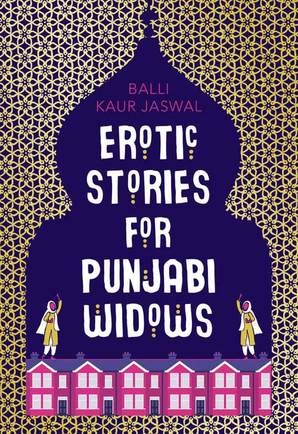
At a recent wedding, I caught myself lingering hesitantly near the bar, weighing how I might evade the gaze of aunties and uncles if I walked back to my table with a glass of wine. At 26, this decision ought to have been straightforward. In a cultural context where good girls marry doctors, however, it wasn’t nearly so simple.
Community still mediates our desires, decisions, and even our deaths. Pakistani model Qandeel Baloch was also 26 when she was murdered by her brother last year on July 15 for “bringing disrepute” to their family’s honor. Her crime? The saucy, sexual photos she posted on social media. Approaching the one-year anniversary of Baloch’s death, I imagined a world where South Asian women can explore pleasure and sexuality on their own terms. Balli Kaur Jaswal‘s Erotic Stories for Punjabi Widows (HarperCollins) is a thrilling exploration of what this reality could look like.
The novel focuses on Nikki, a British Indian twenty-something university dropout who is trying figure out her career. She latches onto an opportunity to teach creative writing classes to a group of Punjabi widows at the gurudwara. When Nikki discovers that many of her students are unable to read or write English, the women start sharing stories of past and present pleasure. Eggplants and cucumbers take on anatomical significance, breasts burst out of sari blouses, and ghee lubes up more than a roti. For the widows, otherwise written off by their families, the weekly storytelling sessions become an avenue for agency and release.
The increasing popularity of the women’s class, however, catches the attention of the Brothers, the Southall Sikh community’s brutish “morality police.” And outside of class, the unresolved deaths of three young Punjabi women cast a shadow on community interactions.
Jaswal deftly uses the imaginative erotica to push the narrative forward: While some might balk at the detailed fantasies, the delightfully explicit writing also undoes stereotypes about South Asian women’s sexual pleasure through its titillation. Her aunties are also multidimensional personalities, grappling with everything from feminism and familial duties, to the more taboo, like marital rape and same-sex desire. I was astonished to see older women portrayed with nuance, without being reduced to a sexless familial role. In the same way, Nikki and her friends are given more depth than typical millennial tropes. As generations collide in the classroom, what unfolds is a nuanced novel about female friendship and patriarchal culture.
Erotic Stories for Punjabi Widows is a quick read, managing to remain light as it navigates the hard stuff. Much in the way Jaswal’s women eagerly shared their sexy, lively stories with one another, I can’t wait to return this book to my public library so more people — especially women — can also explore this world of unmediated desire and decision-making.
* * *
Nina Bhattacharya is a writer and educator based in Cambridge, MA, who develops creative educational tools that make big global health ideas accessible to diverse learners. She’s a graduate of the Harvard T.H. Chan School of Public Health and was a 2012-13 Fulbright Fellow in Indonesia. Find her at @onlynina and listen to her on the Almirah Radio Hour.












